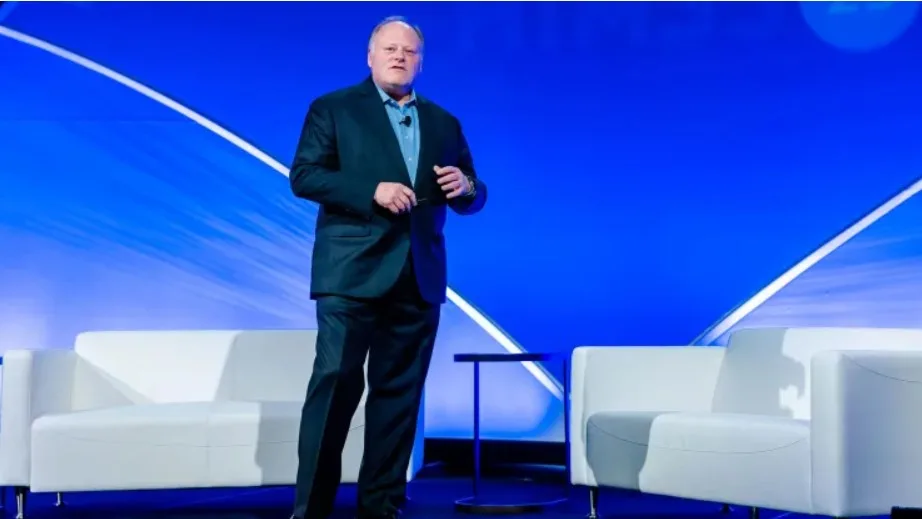TL;DR:
- The healthcare industry is increasingly looking at AI, specifically generative AI, to reduce the burden of administrative tasks on clinicians and streamline clinical workflows.
- The HIMSS Global Health Conference in Chicago showcased AI developments from prominent companies such as Microsoft, Google, and Amazon and emphasized the importance of the responsible deployment of AI in healthcare.
- Administrative tasks in healthcare, such as responding to patient messages, generating clinical notes, and streamlining health insurance claims processing, can be reduced through the use of AI.
- Microsoft announced an expanded partnership with Epic Systems, a healthcare software company, to use AI to generate draft responses to patient messages.
- Amazon Web Services announced a partnership with Philips to use generative AI to simplify clinical workflows and improve imaging capabilities.
- Google Cloud introduced its Claims Acceleration Suite, aimed at streamlining health insurance claims processing.
- While AI has tremendous potential to improve administrative efficiency in healthcare, there is a need to ensure that AI is deployed equitably and without harm to communities and to mitigate the risk of bias and discrimination in decision-making and treatment plans.
Main AI News:
At the recent HIMSS Global Health Conference in Chicago, discussions surrounding the role of artificial intelligence in the healthcare industry took center stage. Over 35,000 attendees from the healthcare sector, including physicians, executives, and engineers, gathered to explore the latest advancements in health and technology. Prominent companies like Microsoft, Google, and Amazon showcased their innovative AI health applications on the exhibition floor, while expert panels addressed the challenges facing the industry, such as staffing shortages and physician burnout, and how AI can be leveraged to tackle these issues.
Generative AI, a subset of AI, has been gaining increasing attention in the healthcare sector, especially with the launch of OpenAI’s ChatGPT last year. Generative AI refers to programs that can generate text or images based on prompts from users. The HIMSS conference’s opening keynote was dedicated to AI and its potential to transform the healthcare industry. HIMSS CEO Hal Wolf jokingly posed the question of how to solve global healthcare challenges to ChatGPT, but David Rhew, Global Chief Medical Officer at Microsoft, stated that generative AI has the potential to be truly transformative for the healthcare industry.
According to Rhew, the application of AI and large language models in clinical workflows is immense, but it is essential to do so responsibly, starting with high-impact, low-risk uses for the technology, such as streamlining administrative tasks. The medical community has been captivated by the potential of generative AI, and the HIMSS conference has further emphasized its significance in solving the big problems facing the healthcare industry.
However, the development of diagnostic or patient-facing generative AI applications is a high-risk undertaking, as it raises several regulatory questions for companies, academic institutions, and agencies like the Food and Drug Administration. Rhew likened the current state of AI in healthcare to being introduced to a car, with none of the necessary road signs, traffic lights, or regulations in place. He emphasized the need for collaboration in navigating these uncharted waters.
In the meantime, administrative or back-office tasks in healthcare are less regulated and present an immediate need for efficient solutions, as the burden of clerical work on clinicians is well-documented. A 2016 study funded by the American Medical Association found that for every hour a physician spent with a patient, they spent an additional two hours on administrative work, with many also performing additional clerical work outside of working hours.
A survey published by the Journal of the Association of American Medical Colleges in 2017 revealed that 24% of physicians’ working hours are dedicated to administrative tasks, with over two-thirds reporting that these responsibilities negatively impact their ability to deliver high-quality care.
HIMSS conference attendees are confident that generative AI can help alleviate the burden of administrative work on clinicians, providing a much-needed solution to a pressing issue in healthcare.
Letting AI Take on Clerical Work
At the HIMSS Global Health Conference, Microsoft announced an expanded partnership with Epic Systems, a leading healthcare software company that provides hospitals and health systems with electronic health record storage, sharing, and access. Over 160 million people use Epic’s MyChart software, which gives patients direct access to their health information and care team.
Epic’s first application of AI technology automatically generates draft responses to messages that physicians receive from patients through MyChart. While physicians are not obligated to use the suggested drafts, it saves them time if they choose to edit or send them. Seth Hain, Senior Vice President of R&D at Epic, sees AI as a powerful tool for hypothesis generation for physicians in the future, enabling them to ask patient-specific questions and streamline their work.
Peter Lee, Corporate Vice President of Research and Incubations at Microsoft, was moved by Epic’s AI developments, describing it as “just blowing me away.” Microsoft’s speech recognition subsidiary, Nuance Communications, also introduced its clinical notes application, DAX Express, aimed at reducing the administrative burden on clinicians by automatically drafting clinical notes within seconds after a patient visit.
During a live demo at HIMSS, Nuance previewed future projects and showcased DAX Express’ capabilities, eliciting gasps and positive reactions from the attending healthcare professionals. Other companies are also exploring the use of generative AI to reduce administrative burdens and streamline work in the healthcare industry.

More than 35,000 people attended the HIMSS conference in 2023. Source: HIMSS
AI Simplifying Clinical Workflows
On Monday, Amazon Web Services announced an expanded partnership with Philips, a leading health technology company based in the Netherlands. AWS has been supporting Philips’ existing cloud-based and AI initiatives, such as those aimed at helping radiologists analyze scans and medical images more efficiently, even from remote locations.
The new partnership will see Philips leveraging AWS’ generative AI technology to further simplify its clinical workflows and enhance its imaging capabilities. According to Shez Partovi, Philips’ Chief Innovation and Strategy Officer, the healthcare industry is approaching a tipping point, where the right thing becomes the easy thing, and AI can play a crucial role in reducing the administrative burden on physicians.
On Tuesday, 3M Health Information Systems also announced its collaboration with Amazon Web Services machine learning and generative AI to reduce physicians’ administrative workload. 3M HIS supports a conversational AI platform used by over 300,000 physicians, and the integration of AWS technology will make it easier for doctors to automate and complete accurate clinical notes in electronic health records.
These partnerships demonstrate the growing recognition of AI’s potential to streamline clinical workflows and improve the quality of life for healthcare professionals. By reducing the burden of administrative tasks, AI can help healthcare professionals focus on delivering high-quality care to their patients.
AI Streamlining Health Insurance Claims Processing
Google Cloud recently unveiled its Claims Acceleration Suite, designed to simplify the process of health insurance claims processing and prior authorization through the use of AI. Currently, the prior authorization process takes an average of 10 days, according to the Centers for Medicare & Medicaid Services. The Claims Acceleration Suite aims to reduce this administrative burden by transforming unstructured data in health records, such as images or PDFs, into a more organized format.
Amy Waldron, Director of Global Health Plans Strategy and Solutions at Google Cloud, highlighted the inefficiencies of the current process, where a human has to rekey the data into the system for review, even though it was already entered into the system in the first place. Waldron believes that AI has the potential to unlock the value of this rich data.
Microsoft’s Rhew also recognizes the tremendous potential of generative As the healthcare industry continues to embrace AI for improving administrative efficiency, it is important for industry leaders, regulators, and academics to ensure that AI is deployed in an equitable and responsible manner without causing harm to communities. The technology can be susceptible to bias and discrimination if it is trained on healthcare data that does not represent the diverse patient population, which could lead to inadequate decision-making or treatment plans. Thus, it is crucial to implement measures that prevent AI from perpetuating existing biases or discrimination in healthcare.
Rhew emphasized the collective responsibility to deploy AI responsibly and with care, recognizing it as a transformative technology. As the healthcare industry continues to embrace AI, it is crucial that the technology is developed and used in a way that benefits all patients and does not perpetuate existing biases or discrimination.




HIMSS CEO Hal Wolf speaks at the HIMSS conference. Source: HIMSS
Conlcusion:
The recent HIMSS Global Health Conference in Chicago highlighted the significant potential of artificial intelligence (AI), specifically generative AI, in transforming the healthcare industry. Companies such as Microsoft, Amazon, and Google demonstrated their advancements in using AI to reduce the burden of administrative tasks on clinicians, simplify clinical workflows, and streamline health insurance claims processing.
The use of AI in healthcare is being widely discussed and considered by the medical community as a way to improve administrative efficiency and reduce the burden of paperwork on healthcare professionals. However, there is a need to ensure that AI is deployed in a responsible and equitable manner, free from bias and discrimination.
The healthcare industry is embracing AI, but it is important to ensure that the technology is developed and used in a way that benefits all patients, regardless of their background or demographic. Industry leaders, regulators, and academics must work together to ensure that AI is trained on diverse and representative healthcare data to minimize the risk of bias and discrimination in decision-making and treatment plans.

